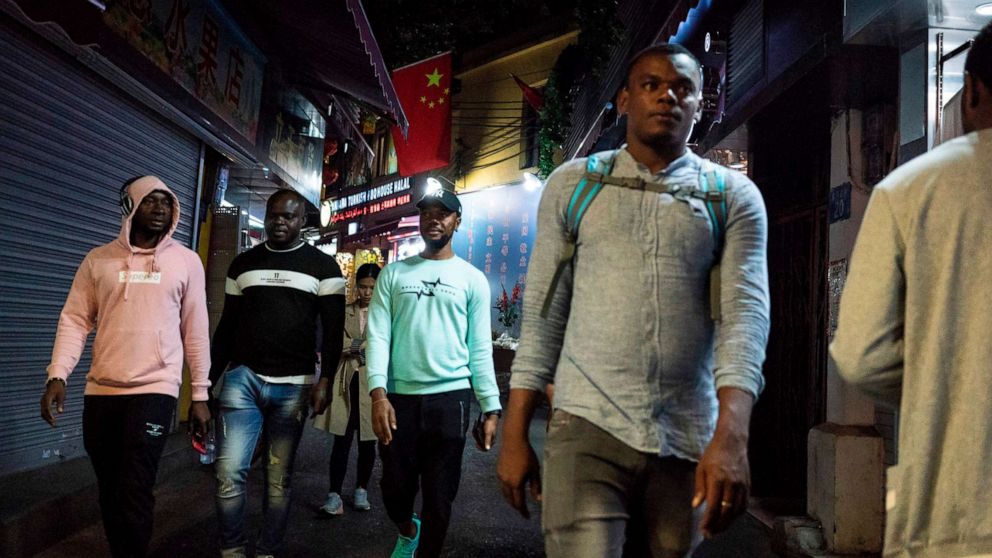I was only seventeen years old when I spent a year of my life in Nanjing, China, and I still remember my Chinese grandmother criticizing my skin color and blaming me for being ‘too tanned.’ Although I do not represent the Chinese beauty ideal; indeed, in China, the skin color is a sign of social class and ‘dark skin’ has long been associated with rural poverty. I still remember my friends and I deciding to go to a club in Shanghai and the PR of the club texting us: “You can enter the club without paying but if you have black friends, please let them know they do need to pay”. This is only one example of the many discriminatory practices that African and black people were and are receiving in China.
China’s ties with Africa go back to the 1950s when China nominated itself as a leader of the developing world, and still today we can see China’s involvement in Africa with Beijing’s Belt and Road Initiative. Although bilateral economic relationship is strong and China’s role is acknowledged for the help China is offering to Africa in the Covid19 times, Africans and black people have been highly discriminated against in China for decades.
According to Article 4 of China’s constitution “all ethnic groups in the People’s Republic of China are equal … discrimination and oppression of any ethnic group is prohibited. It is forbidden to undermine ethnic unity and create ethnic divisions”. Moreover, in 1981, China ratified the International Convention on the Elimination of All Forms of Racial Discrimination (CERD), which condemns any type of discrimination. Nevertheless, demonstrations of anti-black sentiment by Chinese students started at the end of the 1970s. In 1986, in Tianjin, a crowd of Chinese college students threw rocks at a group of African students having a party, and two years later, in 1988, at the Hehai University of Nanjing, a violent fight between Chinese and African students occurred. The Chinese police and government failed to address this clash and Africans and black students decided to leave the campus.
Recently, as Covid19 cases originating in China seemed to decrease, Chinese propaganda claimed that the virus originated outside China and they accused Africans of bringing the virus. Discriminatory treatments against black people thus immediately increased. Many media channels even reported about a signboard displayed outside one of the McDonald’s restaurants in Guangzhou, the Chinese city with the largest African community, which read: “We have been informed that from now on black people are not allowed to enter the restaurant”.
I want to conclude by sharing with you a popular Chinese sentence from chapter nine of the book ‘The Art of War’ by Sun Tzu. He writes:
“Asked if an army can be made to imitate the Shuai ran, I should answer, Yes. For the men of the Wu and the men of Yue are enemies; yet if they are crossing a river in the same boat and are caught by a storm, they will come to each other’s assistance just as the left hand helps the right.”
I would like to draw a parallel between the discriminatory treatments African people receive in China and the discriminatory treatments Chinese people receive in Europe, in particular lately related to the Covid19 crisis, in the UK. I would like to draw a parallel between these discriminatory treatments because discrimination against the Africans has been accelerated by the pandemic in China, in the same way as discrimination against the Chinese people has been compounded by the pandemic in the UK/USA. I would thus like to think of the two armies mentioned by Sun Tzu as two flexible concepts ‘The Us’ versus ‘The Other.’
In the first case it is the Chinese population versus the African one, whereas in the second case, it is the European one against the Chinese one. Two populations, the African and the Chinese people are both suffering discrimination and cannot enjoy their human rights in two different parts of the world, and, at the moment, these discriminations got worse for the same reason, Covid19.
Unfortunately, there is no easy solution to tackle these discriminatory behaviors, nonetheless, we need to create and spread awareness about these racist attitudes. We need to act according to the values of empathy and solidarity in order to achieve social justice, social justice for everyone.

